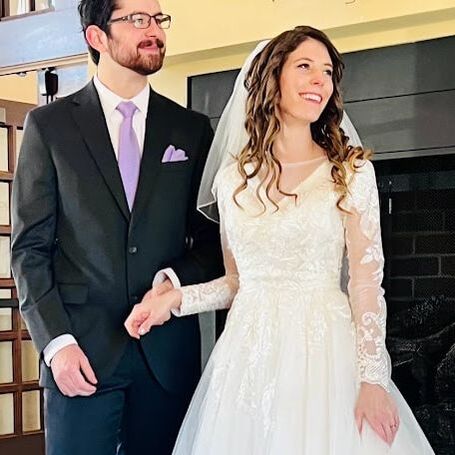|
Life insurance is the most personal type of insurance you can have in today’s world.
But there seems to be a lot of confusion about it. Every consumer has different priorities and feelings. Add to that the fact that life insurance can be used for a variety of financial goals and needs, and you have a recipe for befuddlement. When it comes to life insurance, most agree that if you have children, you should probably have it. There is no question. But what if you don’t have children? Do you need to purchase life insurance? Here’s why it may still be important, even if you don’t have kids now (or don’t plan to): Many households need a dual income to survive. Since women began entering the workforce en masse in 1960, household incomes have been on the rise. Many households have now adopted a lifestyle that depends on a dual income to maintain itself. If you’re in this situation, there might be some consequences of your life insurance decisions. If something happened to you or your spouse, would the survivor still earn enough money to maintain their lifestyle? If the answer is no, consider how a life insurance policy might help. Mortgage debt is big debt. Mortgage debt in the United States is big – bigger than credit card or student loan debt. Still, mortgage debt is “healthy” debt assuming the growing equity in a home makes it worthwhile. But mortgage debt can become a problem if a household’s income takes a hit. Life insurance can protect families from this risk by helping to pay off a mortgage, should something happen to you or your spouse. Either a term life policy or a special mortgage life policy can be used to pay off a mortgage. Mortgage life insurance can be a nice layer of protection for couples that don’t have children but do have a mortgage. Life insurance can be used as a savings tool. Many life insurance policies offer a cash value. This means that certain policies can be cashed in whether or not a death has occurred. In this way, a life insurance policy can act as a savings tool. Couples without children can pay into their policy in the form of the premiums, and then cash it out for a retirement dream: a new home, a hobby business, or an extended vacation. Using life insurance as a savings tool can offer tax benefits, a guaranteed savings method for the “savings challenged”, and a creative way to finance a dream. In short, it’s a savvy use of life insurance for couples who don’t have kids. Funeral expenses can wipe out an emergency fund. A life insurance policy can help cover funeral expenses for you or your spouse. This is one of the most common uses of life insurance. The average funeral today can cost between $7,000 and $10,000. That’s enough to wipe out an emergency fund, or seriously deplete it. Having a life insurance policy in place can help cover expenses if you or your spouse were to pass away unexpectedly, so you can leave your fund for the day-to-day difficulties intact. Whether you have children or not, a sudden illness or loss of a breadwinner can have lasting consequences for the loved ones you leave behind. Taking advantage of a well-tailored life insurance policy to shield them from an unnecessary financial burden if something were to happen is one of the best gifts you can give.
0 Comments
 The average cost of a wedding in the U.S. is $30,000 - crazy high, in my opinion, that amount might be enough for a down payment on a first home! Having cold feet about shelling out that much cash for one day’s festivities? Or even worse, going into debt to pay for it? Here are a few ideas on how you can make your wedding day a special day to remember while still saving some of that money for other things. Invite Close Friends and Family Many soon-to-be newlyweds dream of a massive wedding with hundreds of people in attendance to honor their big day. But at some point during any large wedding, the bride or the groom – or maybe both – look around the well-dressed guests and ask themselves, “Who are all of these people, anyway?” You can cut the cost of your wedding dramatically by simply trimming the guest list to a more manageable size. Ask yourself, “Do I really need to invite that kid who used to live next door to our family when I was 6 years old?” Small weddings are a growing trend, with many couples choosing to limit the guest list to just close friends and immediate family. That doesn’t mean you have to have your wedding in the backyard while the neighbor’s dog barks during your vows – although you certainly can. It just means fewer people to provide refreshments for and perhaps a less palatial venue to rent. Budget According to Priorities Your wedding is special and you want everything to be perfect. You’ve dreamed of this day your entire life, right? However, by prioritizing your wish list, there’s a better chance to get exactly what you want for certain parts of your wedding, by choosing less expensive – but still acceptable – options for the things that may not matter to you so much. If it’s all about the reception party atmosphere for you, try putting more of your budget toward entertainment and decorations and less toward the food. Maybe you don’t really need a seven-course gourmet dinner with full service when a selection of simpler, buffet-style dishes provided by your favorite restaurant will do. My little sister had a soup and charcuterie spread AND she asked several family members to bring a crock pot full of their favorite soup. He bill was tiny compared to other weddings I've been to.  Incorporate More Wallet-Friendly Wedding Ideas A combination of small changes in your plan can add up to big savings, allowing you to have a memorable wedding day and still have enough money left over to enjoy your newfound bliss. Consider a different day of the week. If you’re planning on getting married on a Saturday in June or September, be prepared to pay more for a venue than you would any other day of the week or time of the year. Saturday is the most expensive day to get married, and June and September are both peak wedding season months. So if you can have your wedding on, say, a Friday in April or November, this has the potential to trim the cost of the venue. An idea I love is to rent a vacation house – or even get married on a boat. The smaller space will prevent the guest list from growing out of control and the experience might be more memorable than at a larger, more typical venue. Of course, both options necessitate holding the reception at the same location, saving money once more. Watch the booze costs. There’s no need to have a full bar with every conceivable drink concoction and bow-tied bartenders that can perform tricks with the shakers. Odds are good that your guests will be just as happy with a smaller-yet-thoughtfully-chosen selection of beer and wine to choose from. Be thrifty. If you really want to trim costs, you can get creative about certain traditional “must-haves,” ranging from skipping the flowers (chances are that nobody will even miss them) to purchasing a gently-used gown. Yes, people actually do this. Online outlets like OnceWed.com provide beautiful gowns for a fraction of the price of a new gown that you’ll likely never wear again. There’s a happy medium between a royal wedding and drive-thru nuptials in Vegas. If you’re looking for a memorable day that won’t break the bank, try out some of the tips above to keep things classy, cool – and within your budget and, don't forget to insure your special day to make sure huge expenses don't come your way should anything go wrong! |
Meet the author:
|
Navigation |
Connect With UsShare This Page |
Contact UsFront Range Insurance Solutions
215 Cheesman St, Suite M, Erie, CO 80516 (720) 389-7651 Click Here to Email Us |
Affiliated with DCI |
Location |
Website by InsuranceSplash




 RSS Feed
RSS Feed
